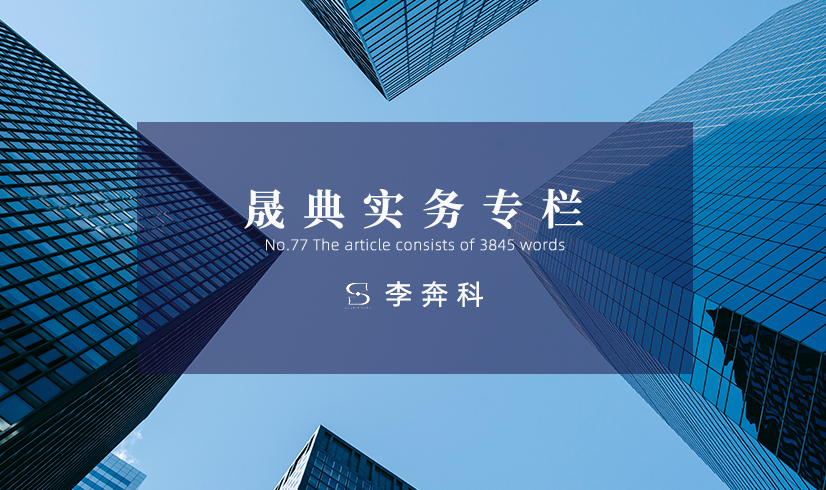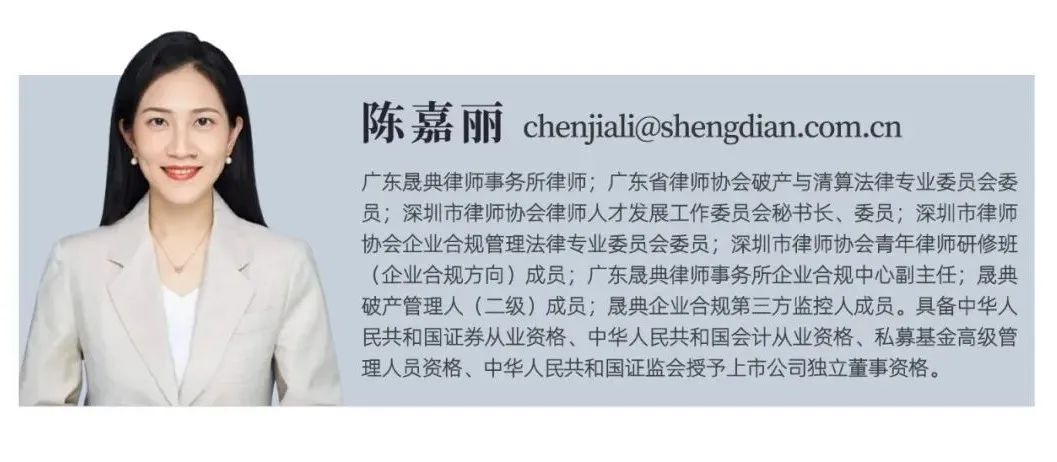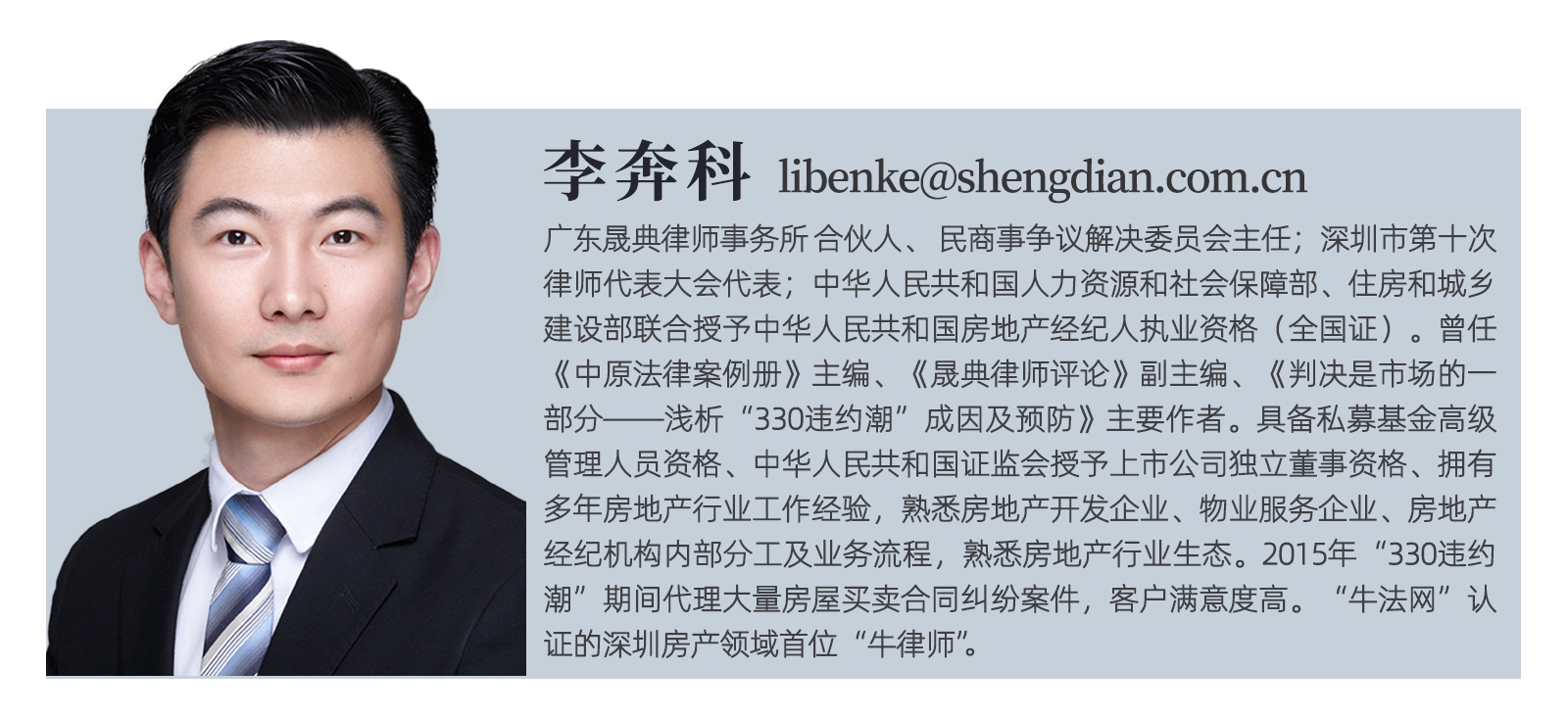"Rotten tail", the buyer's litigation plan comparison.
 Loading...
Loading...
 2022.07.20
2022.07.20

Recently, the "great judgment" and "the risk of uncompleted residential buildings should not be entirely borne by property buyers" have been repeatedly mentioned by the real estate self-media and the legal self-media (2019) Supreme Law Min Re -245 Judgment. Can the litigation plan involved solve the current difficulties encountered by "property owners who declare to stop lending" (hereinafter referred to as "property buyers")?
In my opinion, not necessarily.
Once a real estate project is "unfinished", there are many legal subjects involved and the legal relationship is complex. Buyers need to comprehensively consider the issue of winning the judgment, the enforcement of the judgment and the future trend of the "unfinished project" before making decisions.
The main points of the Supreme Famin No. 245 judgment: the seller (developer) did not deliver the house within the agreed time limit, resulting in the dissolution of the "commercial housing presale contract" involved in the case, and the "loan contract" and "mortgage contract" were also dissolved because the purpose of the contract could not be realized. the seller should return the principal and interest of the house purchase loan collected to the security right holder (loan bank) and the buyer (house buyer), the buyer is not obliged to return.
Article 21, paragraph 2, of the Interpretation of the Supreme People's Court on Several Issues Concerning the Application of Law in the Trial of Disputes over Contracts for the Sale and Purchase of Commercial Housing (as amended in 2020) (hereinafter referred to as the "Judicial Interpretation of Contracts for the Sale and Purchase of Commercial Housing") also stipulates that after a contract for the sale and purchase of commercial housing has been confirmed to be invalid or has been revoked or terminated, if the commercial housing guarantee loan contract is also terminated, the seller shall return the principal and interest of the purchase loan and purchase money received to the security right and the buyer respectively.
Since both the judicial interpretation and the effective judgment of the Supreme Law support that "after the termination of the commercial housing sales contract, the commercial housing guarantee loan contract is also terminated, the developer should return the purchase loan to the mortgage bank, and return the purchase principal and interest to the buyer", then, can this litigation scheme really effectively protect the legitimate rights and interests of property buyers?
This paper intends to compare three kinds of litigation rights protection schemes through the analysis of litigation schemes.
We will "1. order the termination of the commercial housing sales contract; 2. order the termination of the commercial housing guarantee loan contract; 3. order the developer to return the buyer's down payment principal and interest; 4. order the developer to return the purchase loan to the mortgage bank; 5. order the developer to bear all litigation costs." As the "litigation program (I)" for analysis.
Judging from the judicial interpretation and the effective judgment of the Supreme Law, after the termination of the commercial housing sales contract, the developer must return the down payment principal and interest to the buyer, and the buyer does not have to bear the mortgage. The problem seems to have been solved, but it is not. Any litigation plan should be analyzed, deduced and verified under specific circumstances.
At present, the specific situation faced by the "declaration of loan suspension owners" is that the project has been suspended or overdue, the developer has fallen into a debt crisis, and the developer has a high probability of no funds to continue to invest in construction. In this case, there are two possible trends: 1. the developer continues to build and deliver the building through financing or project restructuring; or 2. the developer enters into bankruptcy proceedings.
Assuming that the conditions for the termination of the contract for the sale of commercial housing have been achieved (the conditions for termination have been reached), the buyer exercises the right to terminate the contract, and the subsequent effective judgment also orders the developer to return the down payment principal and interest to the buyer, but whether the buyer can finally get back the down payment and interest also depends on whether the developer has property for execution. According to the current situation, in the enforcement stage, developers may not have the ability to execute, and may enter bankruptcy proceedings. In the bankruptcy proceedings, the buyer's "down payment principal and interest" claims belong to ordinary claims, after secured claims, employee claims, social security claims, tax claims and other claims. It can be predicted that if the developer enters the bankruptcy procedure, the ordinary creditor's rights of "down payment principal and interest" will be realized in a very low proportion, or even impossible. In layman's terms, if you choose to terminate the commercial housing sales contract, the buyer will eventually not get back the "down payment principal and interest" or can only get back a very low proportion. In addition, since the date of termination of the contract, the property purchased has nothing to do with the buyer, and the buyer has given up the opportunity to hand over the property in the future. And this kind of abandonment is "irreversible". In the future, if the real estate meets the delivery conditions, it is impossible for the buyer to find the developer to "regret" the house, and the developer's creditors or new investors will not agree.
To sum up, under the condition that the cancellation conditions have been fulfilled and the buyer has the right to cancel the contract, no matter whether the buyer cancels the contract by issuing a notice of cancellation to the developer or by applying for the cancellation of the commercial housing sales contract, the Litigation Scheme (I) has the risk that the down payment cannot be recovered or only a lower proportion can be recovered in the end, and the opportunity to deliver the building is irreversibly abandoned.
Some readers will certainly ask, when the buyer buys a house, he pays the down payment, and the mortgage bank pays the mortgage loan on his behalf, that is, after the buyer pays the full amount to the developer, the real estate project is "unfinished". In this case, the buyer does not want the house. I just want to get back the down payment and rank behind the developer's secured claims, employee claims, social security claims, tax claims and other claims, is too unfair? The reform and improvement of the presale system and supporting laws and regulations is another grand topic. At present, buyers need to pay attention to how to protect their rights under the current effective legal rules to avoid detours and avoid stepping on thunder.
In one case, the buyer's down payment has the right of priority.
2.Litigation Program (II)
According to the relevant legal provisions and judicial practice, after the developer goes bankrupt, if the bankruptcy administrator chooses to terminate the commercial housing sales contract, the creditor's right to return the purchase price to the commercial housing consumer is a priority creditor's right. Because the post-bankruptcy administrator's choice to terminate the contract is based on the special protection of the bankrupt debtor, for the buyer, the termination of the contract is mandatory. Considering the protection of the right of survival and residence of the buyers, if they are not given priority to the right of compensation, it will have an impact on the survival of the buyers. We will "wait for the insolvency representative to terminate the contract" as the "litigation program (II)."
What should be noted in the (II) of litigation scheme is that 1. from "unfinished business" to the bankruptcy of the developer, the cycle is long and the time is uncertain; 2. according to the relevant provisions and judicial practice, the above priority based on the right of survival and the right of residence shall be "the purchased commercial house is used for living and there is no other house for living under the name of the buyer". The "Minutes of the National Court Civil and Commercial Trial Work Conference" (Law [2019] No. 254) holds that "there is no other house for residence under the name of the buyer", which can be understood as the house involved in the same district city or county-level city within the name of the commercial housing consumer is not used for residence. Although there is already a house under the name of commercial housing consumers, the purchased house still meets the basic living needs in terms of area, which can be understood as in line with the spirit of the regulation.
What needs to be reminded is that the "Litigation Plan (II)", like the "Litigation Plan (I)", is a plan to terminate the contract and give up the real estate, but it has certain advantages in the return of the down payment guarantee. However, there are certain restrictions on the scope of application of priority, and even if priority is enjoyed, it is not certain when and how much down payment will eventually be received.
3.Litigation Program (III)
"Litigation Scheme (I)" and "Litigation Scheme (II)" are all schemes to terminate the contract and give up the real estate. Are there any litigation schemes to continue to perform the contract and wait for the "guaranteed delivery of the building?
This is also the focus of this article "litigation program (III)", sued mortgage banks, developers, appeal to suspend repayment.
1. The plaintiff (the buyer) is ordered not to perform the obligation to repay the principal and interest in the "Personal Purchase Loan and Guarantee Contract" to the mortgage bank from the date of the lawsuit until the property in question has the conditions for delivery (the plaintiff does not need to pay the mortgage bank the interest on the loan in question during the above-mentioned period, including the interest, compound interest and penalty interest agreed in the contract);
2. The two defendants were ordered to bear all the costs of the case.
When the Guangyao real estate project was "unfinished", the Intermediate People's Court of Huizhou City, Guangdong Province issued (2017) Yue 13 Min Zhong No. 1881 Judgment (Effective Judgment). The Court held that the mortgage bank, as a professional bank financial institution, should be aware of the risks of presale funds deposited into non-special accounts in the presale commercial housing market, while the mortgage bank did not fulfill its obligation to inform the buyers at the time of the contract and during the contract performance, the above-mentioned behavior of the mortgage bank is the indirect cause of the result of the "unfinished" of the real estate project involved in the case, so the mortgage bank should bear part of the liability for contracting negligence to the buyer. Regarding the division of responsibilities, since the developer's breach of contract is the main and direct cause of the buyer's losses involved in the case, and the mortgage bank's failure to fulfill its obligation of notification is the indirect cause of the buyer's losses involved in the case, therefore, considering from the principle of fairness, the mortgage bank should bear part of the responsibilities for the relevant losses before the commercial housing involved in the case meets the delivery conditions, the buyer has the right to refuse to perform the obligation of repaying the principal and interest in the mortgage contract from the date of prosecution until the commercial house involved has the delivery conditions, and the buyer does not need to pay the interest (including compound interest and penalty interest) of the loan involved in the above period to the mortgage bank, and the principal and interest already repaid by the buyer to the mortgage bank during the above period will not be refunded. However, when the commercial housing involved in the case has the conditions for delivery, the buyer should still fulfill the obligation to repay the principal and interest in the "Personal Purchase Loan and Guarantee Contract. The mortgage bank may also recover the above losses from the developer.
After the above judgment came into effect, the mortgage bank applied to the Guangdong Provincial Higher People's Court for a retrial. The Guangdong High Court believes that the "Personal Purchase Loan and Guarantee Contract" signed between the mortgage bank and the buyer did not stipulate the loan payment account involved in the case, and then the mortgage bank did not pay the loan to the developer for the commercial housing project involved in the case. Special account, but paid to other bank accounts opened by the company. In this regard, the Huizhou Real Estate Administration issued the "Letter on Rectification of Pre-sale Housing Mortgage Loans" (Huishi Housing Letter [2016] No. 255) issued to the mortgage bank, indicating that the commercial housing mortgage loans in Huizhou must be transferred to the loan The corresponding presale fund supervision account of the commercial housing is supervised and used by the housing management department. Violations may cause adverse consequences. Moreover, the mortgage bank on the loan involved in the case issued by the "commercial housing purchase (mortgage) funds into the special account statement", promised to the buyer's purchase of commercial housing follow-up housing (mortgage) all into the advance payment special account, if there is a breach of the will to assume responsibility. It can be seen that the mortgage bank still pays the loan involved in the case to the bank account other than the special account for the pre-sale of commercial housing, and issues a statement inconsistent with the actual payment behavior, even if it knows the special requirements for the mortgage fund of commercial housing, the special account for advance sale of commercial housing opened by the developer and the possible adverse consequences of issuing loans in violation of regulations. As a professional financial institution, it is at fault in the process of signing and performing the contract, the 1. judgment of the second instance accordingly determines that the buyer does not need to perform the obligation to repay the principal and interest in the Personal Purchase Loan and Guarantee Contract from the date of prosecution until the delivery conditions of the commercial house involved in the case are met. The principal and interest repaid by the buyer to the mortgage bank will not be returned. When the commercial house involved in the case is subject to the delivery conditions, the buyer should still perform the obligation to repay the principal and interest in the Personal Purchase Loan and Guarantee Contract, there is no improper. Reject the mortgage bank's application for retrial.
The premise of the (III) of the Litigation Scheme is that the mortgage bank has not issued the mortgage loan to the presale fund supervision account, and the above-mentioned effective judgment and the Guangdong High Court ruling have determined that in this case, the buyer may suspend the repayment of the loan from the date of the lawsuit and resume the repayment after the project has the delivery conditions.
From the above analysis, it can be seen that both the Litigation Scheme (I) and the Litigation Scheme (II) are schemes to abandon the property, and there is a risk that the buyer will not be able to recover the down payment or will only be able to recover a lower percentage. From the perspective of effectively protecting the legitimate rights and interests of property buyers, the (III) of litigation scheme is better than the (II) of litigation scheme and the (I) of litigation scheme. In addition, "unilateral suspension of loans" has the risk of being sued by the mortgage bank. It is recommended that home buyers and local lawyers discuss the feasibility of prosecuting rights through the "Litigation Program (III)", so as to "stop loans in accordance with the law", avoid legal risks, and protect themselves in accordance with the law. Legal rights.
Special Note: The above-mentioned litigation plan analysis is a directional analysis, and the specific litigation plan will vary depending on the real estate project, evidence, parties, etc. The above analysis only represents the author's analysis opinion, not the opinion of the practicing organization, nor does it constitute a guarantee of any litigation result.
This team of lawyers can represent property buyers in Guangdong Province in litigation and rights protection. If necessary, please contact us.
Introduction to the Author


![]() Loading...
Loading...![]() 2022.07.20
2022.07.20






